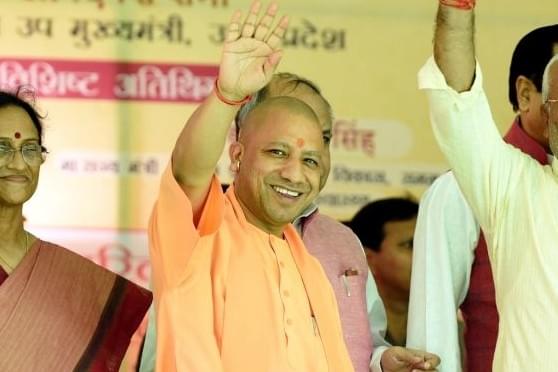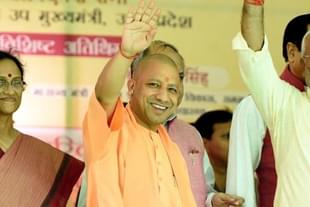News Brief
UP: Yogi Govt To Provide 100 Days Of Employment To At Least 25 Lakh Families In State
IANS
Apr 29, 2021, 04:19 PM | Updated 04:19 PM IST
Save & read from anywhere!
Bookmark stories for easy access on any device or the Swarajya app.


The Yogi Adityanath government in Uttar Pradesh has charted out a plan to scale up employment under Mahatma Gandhi National Rural Employment Guarantee Scheme (MNREGS) by engaging gram rozgar sewaks and women workers who will ensure 100 days of employment to at least 25 lakh families.
According to the government spokesman, the proposal is likely to be implemented soon after the panchayat elections are over.
"The state government seeks to provide 100 days of employment to over 25 lakh families through this measure. "We are receiving reports of people coming back to UP because of the massive increase in corona virus pandemic," the spokesman said.
Unlike gram rozgar sewaks who are there in all 59,000 gram panchayats, women mates are engaged in selected MNREGS sites that have women labourers.
The state government now plans to engage a woman mate in every gram panchayat.
The government had earlier provisioned employment of a women mate to supervise a group of 50 women labourers. The number of labourers has now been reduced to 20 for effective monitoring of works done under MNREGS.
During 2020-21, the state managed to engage 1.11 crore workers, essentially men.
The deployment of women mates would help the state government generate employment for women at work sites.
Data show that while the state recorded a whopping jump of 87 per cent in terms of employment under MNREGS in 2020-21, in comparison to previous year, the share of women workers largely remained unchanged at less than 33 per cent.
"This is an opportunity to create additional employment for men as well as women under MNREGS," said a senior official in the rural development department.
He said both gram rozgar sewak and women mate would prepare their list of families which need employment separately.
"These families will be at their disposal. They will try to provide them 100 days of employment," he said. These families would be later registered with the labour department.
(This story has been published from a wire agency feed without modifications to the text. Only the headline has been changed.)





